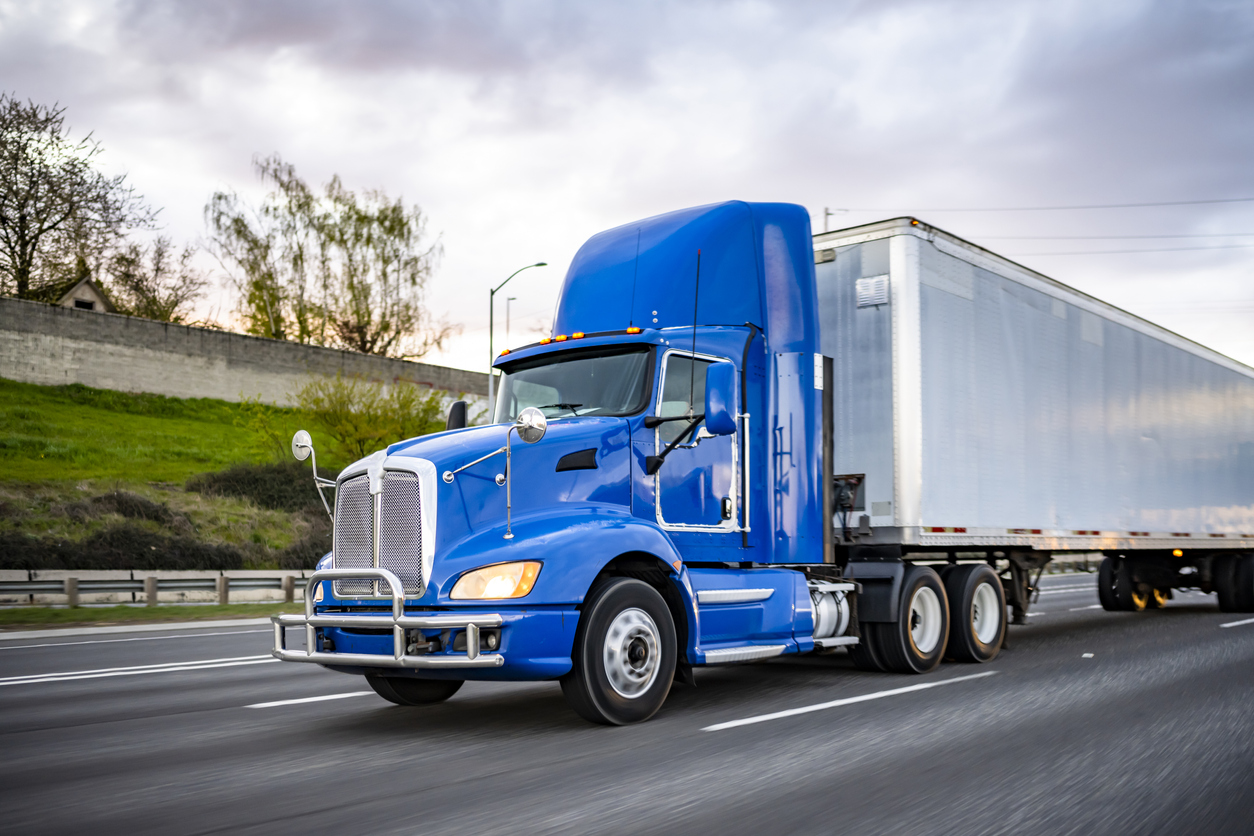Michael Pines | August 8, 2025 | Truck Accident Lawyer Near San Diego

Commercial driving is highly regulated in California. Drivers must obtain the proper Commercial Driver’s License (CDL) before operating certain vehicles. Understanding the distinctions between CDL classes and endorsements is important for all drivers, especially if you have been involved in an accident. Here is what you need to know about the types of Commercial Driver’s Licenses in California before you get in a truck accident.
Class A CDL
A Class A CDL is the most comprehensive license. It allows drivers to operate the heaviest commercial vehicles.
Drivers with a Class A CDL can operate:
- Any combination of vehicles with a gross combination weight rating (GCWR) of 26,001 pounds or more, provided the towed vehicle weighs more than 10,000 pounds.
- Tractor-trailers, semi-trucks, and truck-and-trailer combinations used in long-haul freight transport.
Class A holders may also operate vehicles requiring Class B or C licenses. However, certain cargo or passenger transport may require additional testing and endorsements. Because these vehicles are large and often loaded with heavy cargo, accidents involving Class A CDL drivers can result in catastrophic injuries and liability disputes.
Class B CDL
A Class B CDL covers single, heavy commercial vehicles and certain towing combinations.
Drivers with a Class B CDL can operate:
- Any single vehicle with a gross vehicle weight rating (GVWR) of 26,001 pounds or more.
- Single vehicles towing a trailer that weighs 10,000 pounds or less.
- Buses, box trucks, dump trucks, and delivery vehicles.
Class B licenses are common among city bus drivers, school bus drivers, and commercial delivery drivers. These drivers must adhere to strict safety rules because they often operate in densely populated areas.
Class C CDL
A Class C CDL is required for specific commercial driving situations involving smaller vehicles or hazardous cargo.
Drivers with a Class C CDL can operate:
- Vehicles designed to transport 16 or more passengers, including the driver.
- Vehicles transporting hazardous materials in quantities that require placarding under federal regulations.
Class C CDL holders must obtain the proper endorsements for passenger or hazardous material transport. Even though these vehicles are typically smaller, the risk to passengers or the public can be substantial in an accident, especially when hazardous materials are involved.
CDL Endorsements in California
Endorsements are special authorizations added to a CDL that allow the driver to operate specific vehicles or carry certain cargo. These endorsements often require additional written and road tests and background checks for sensitive cargo.
Common California CDL endorsements include:
- P – Passenger Transport: Required for carrying passengers.
- S – School Bus: For operating school buses, with additional safety training.
- T – Double/Triple Trailers: For pulling two or three trailers.
- N – Tank Vehicles: For transporting liquids or gases in tanks.
- H – Hazardous Materials (HazMat): For transporting federally regulated hazardous substances.
- X – Tanker and HazMat Combination: For hauling hazardous materials in tanks.
Failing to have the correct endorsements can lead to fines, license suspension, and liability issues if an accident occurs.
Why CDL Classification Matters in Truck Accident Cases
A driver’s CDL type and endorsements can play a significant role in determining liability in personal injury or wrongful death claims involving a commercial driver. If a driver was operating a vehicle outside the scope of their license or without proper endorsements, it may indicate negligence or employer liability for improper hiring or training.
For example:
- A Class B driver operating a semi-truck requiring a Class A license may be driving illegally.
- A hazardous materials transport without an “H” endorsement may involve federal safety violations.
- An employer who allows an improperly licensed driver to operate a vehicle may face direct liability.
These factors can influence settlement negotiations in California personal injury claims.
Contact the San Diego Truck Accident Lawyers at Pines Salomon Personal Injury Lawyers for Help Today
If you have been injured in an accident involving a commercial driver in San Diego, California, understanding the driver’s CDL classification and endorsements may be crucial for your case. A San Diego truck accident lawyer at Pines Salomon Personal Injury Lawyers can investigate whether the driver and their employer complied with state and federal licensing laws. Contact us today for a free consultation.
For more information, contact an experienced truck accident lawyer at Pines Salomon Personal Injury Lawyers to schedule a free initial consultation today.
We proudly serve San Diego County and its surrounding areas:
Pines Salomon Injury Lawyers – San Diego Office
835 5th Avenue #302, San Diego, CA 92101
(858) 551-2090
Available 24/7

Pines Salomon Injury Lawyers – La Jolla Office
4660 La Jolla Village Dr. San Diego, CA 92122
(858) 585-9031
Available 24/7

